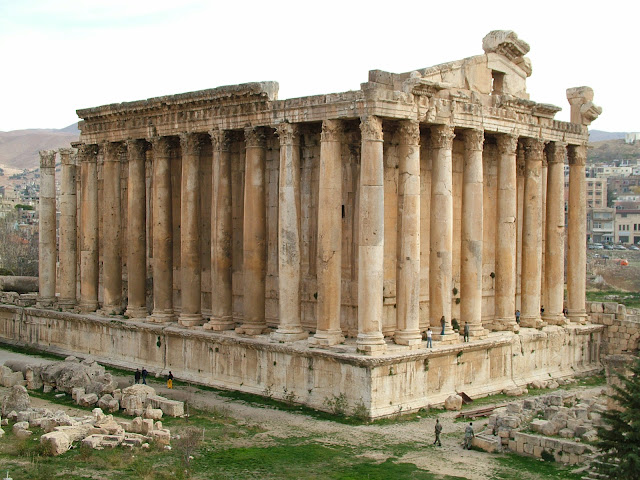Notes:
1.24: Of the fact that those persons who, reject the God of Israel,
in consequence fail to worship all the gods; and, on the other hand, that those
who worship other gods, fail to worship Him.
Having discussed the fact that the pagans have confused the
God of the Bible with Saturn and Jupiter, Augustine returns to his primary apologetic
point, namely, that pagan continuation of the worship of the gods and rejection
of the worship of Christ is both inconsistent with the tolerant theology of
paganism (in which all gods are worshipped) and with Christian theology
(which dictates that only Christ should be worshipped). He also stresses that
the exclusive worship of Christ was “announced beforehand” through the OT
prophets in their denunciation of idolatry.
1.25: Of the fact that false gods do not forbid others to be
worshipped along with themselves. That the God of Israel is the true God, is
proved by His works, both in prophecy and in fulfillment.
Augustine continues his apologetic against paganism by noting
that none of gods, even if mightier and more virtuous than another god, ever
interdicts the worship of that other god. Jupiter, therefore, does not
interdict the worship of Saturn, and chaste Dianna does not interdict the worship
of the crude Priapus. The God of Israel, however, forbids the worship of any
other gods by images and rites. Thus, the Biblical God shows that the pagan
gods are “false and lying deities,” and he is “the one true and truthful God.”
The pagans have no right to reject the one true God, because God’s
works prove him to be true. Augustine surveys various events from the Bible to
illustrate these works. Rather than point to primordial history (the
translation of Enoch, the flood and Noah’s ark), he begins in Genesis 12 with the
call of Abraham and the promise to bless the nations through his seed (fulfilled
in the birth of Jesus to the virgin Mary). He traces the patriarchs Isaac and Jacob,
and deliverance under Moses. He notes that from Abraham eventually came Judah
(the son of Jacob), and from him the Seed (Jesus) to bless the nations. The
works of God are demonstrated in that now there was a generation of Christians willing
to break apart the idols of their fathers.
Conclusion:
Augustine uses the quality of toleration in the practice of pagan
religion as a tool against that religion. He points to its logical inconsistencies,
arguing that the Biblical concept of one true God is proven by that God’s
actions in history.
JTR

No comments:
Post a Comment